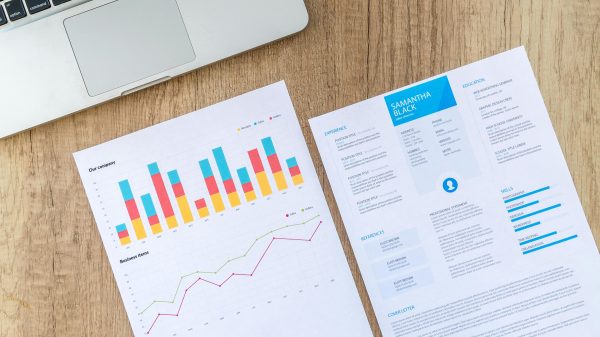Employment will be affected to the extent that there are tasks that can be automated and easily replaced or that require only minimal supervision.
Which sectors are most likely to be affected?
All sectors are being affected by technological advances and, more specifically, by the adoption of artificial intelligence, but those sectors that require activities that can be performed without human intervention will be most impacted.
What challenges does artificial intelligence pose for employment?
- Adaptability. On the one hand, the ability of both companies and workers to adapt.
- According to a Microsoft study, 60% of companies express concern that their organisation lacks a clear plan and effective vision for implementing AI. This is a problem for many companies, as we are increasingly living in a world of greater immediacy, and adoption will be a challenge with its constant learning and the need to be much more agile than any other technology. Advances are made every day, and if you are not up to date, you are missing out. If this does not happen in any of the positions we currently have, they could cease to be competitive and attractive in the market.
- Influence of bias. According to the RAE, bias is the ‘direction or course taken by a matter’. When training this type of intelligence began, bias, i.e. tendencies or inclinations to make decisions one way or another, which can lead to wrong decisions when there is no human intervention to perceive other characteristics, was not taken into account as much as it is today. For example, facial recognition models that have been trained with lighter skin tones would have problems with darker skin tones and vice versa. This does not happen as much now because it is something that is being taken into account, but biases have been discovered between models that had been trained only with men and not women, or from more Western and European areas, etc. This meant that decisions were oriented towards some options rather than others. It is also a problem that must continue to be monitored because it still exists.
- Creativity within everyone’s reach. Another challenge is the openness to creativity that is reaching more and more people through artificial intelligence. We used to be accustomed to developing a professional career and gaining expertise in the market, but because of this accessibility, the most creative jobs are now being filled by people who simply know how to use the technology and are not creative or experts in those fields.
- Personalisation or loss of empathy: undoubtedly, no matter how well trained these models are, the closeness that only people can have will be lost. For example, in a job interview without a human being, the ability to pick up on the emotions and expressions of the person being interviewed will be lost, which could lead to the loss of a potentially valid candidate.
And what opportunities
Interestingly
Employment will be affected to the extent that there are tasks that can be automated and easily replaced or that require only minimal supervision.
Which sectors will be most affected
All sectors are being affected by technological advances and, more specifically, by the adoption of artificial intelligence, but those sectors that require activities that can be carried out without human intervention will be most impacted.
What challenges does artificial intelligence pose for employment?
- Adaptability. On the one hand, the ability of both companies and workers to adapt.
- According to a Microsoft study, 60% of companies express concern that their organisation lacks a clear plan and effective vision for implementing AI. This is a problem for many companies, as we are increasingly living in a world of greater immediacy, and adoption will be a challenge with its constant learning and the need to be much more agile than any other technology. Advances are made every day, and if you are not up to date, you are missing out. If this does not happen in any of the positions we currently have, they could cease to be competitive and attractive in the market.
- Influence of bias. According to the RAE, bias is the ‘direction or course taken by a matter’. When training this type of intelligence began, bias, i.e. tendencies or inclinations to make decisions one way or another, which can lead to wrong decisions when there is no human intervention to perceive other characteristics, was not taken into account as much as it is today. For example, facial recognition models that have been trained with lighter skin tones would have problems with darker skin tones and vice versa. This does not happen as much now because it is something that is being taken into account, but biases have been discovered between models that had been trained only with men and not women, or from more Western and European areas, etc. This meant that decisions were oriented towards some options rather than others. It is also a problem that must continue to be monitored because it still exists.
- Creativity within everyone’s reach. Another challenge is the openness to creativity that is reaching more and more people through artificial intelligence. We used to be accustomed to developing a professional career and gaining expertise in the market, but because of this accessibility, the most creative jobs are now being filled by people who simply know how to use the technology and are not creative or experts in those fields.
- Personalisation or loss of empathy: undoubtedly, no matter how well trained these models are, we will lose the closeness that only people can have. For example, in a job interview that does not involve a human being, the ability to pick up on the emotions and expressions of the person being interviewed will be lost, which could lead to the loss of a potentially valid candidate.
And what opportunities
Interestingly, the opportunities may be the same as the challenges in terms of creativity and agility. We will no longer have to spend a lot of time generating an idea or a creative process, as the application of AI saves a lot of time and this allows any company to gain market share.
Which professional profiles may be most affected
Undoubtedly in those that involve repetitive or pattern-based tasks, as well as requiring a basic level of supervision. For example, contact centre services or services that handle first-level customer calls, where there are often similar daily cases, could create bots or alternatives so that they can be replaced by AI.
The same applies to advertising positions where product/service ideas need to be generated, as well as more administrative jobs that require someone to review documents.
What new professional profiles will emerge thanks to AI?
There will always be a person behind AI technologies to supervise them, so jobs will emerge in sectors where AI is most likely to be used, such as the legal field, marketing or advertising, customer service, etc., where a person is really needed to supervise the technology’s activity and verify or check that the information is real.
One of the jobs that is booming and will surely require more experts over time is the person responsible for certifying whether the information or images in an advertisement, laws or regulations, or customer complaints are real or generated by technology.
The opportunities may be the same as the difficulties in terms of creativity and agility. We will no longer have to spend a lot of time generating an idea or a creative process, as the application of AI saves a lot of time and this allows any company to gain market share.
Which professional profiles may be most affected
Undoubtedly in those that involve repetitive or pattern-based tasks, as well as requiring a basic level of supervision. For example, contact centre services or services that handle first-level customer calls, where there are often similar daily cases, could create bots or alternatives so that they can be replaced by AI.
The same applies to advertising positions where product/service ideas need to be generated, as well as more administrative jobs that require someone to review documents.
What new professional profiles will emerge thanks to AI?
There will always be a person behind AI technologies to supervise them, so jobs will emerge in sectors where AI is most likely to be used, such as the legal field, marketing or advertising, customer service, etc., where a person is really needed to supervise the technology’s activity and verify or check that the information is real.
One of the jobs that is booming and will surely require more experts over time is the person responsible for certifying whether the information or images in an advertisement, laws or regulations, or customer complaints are real or generated by technology.






